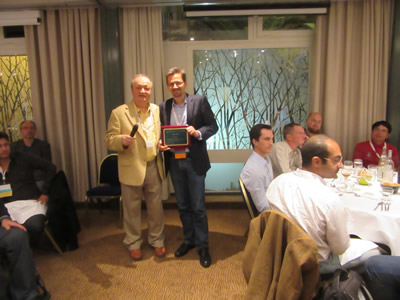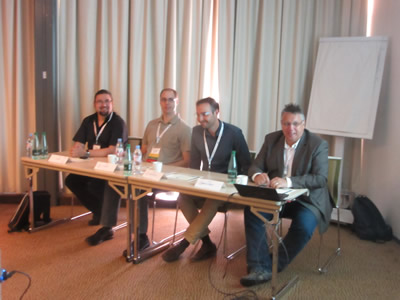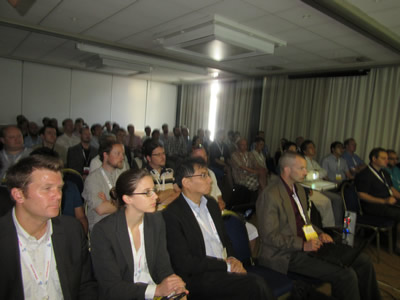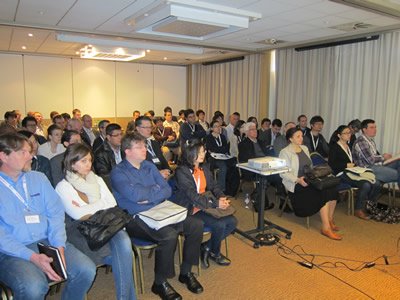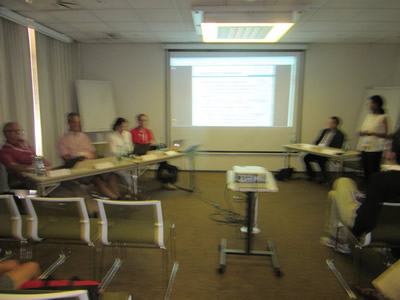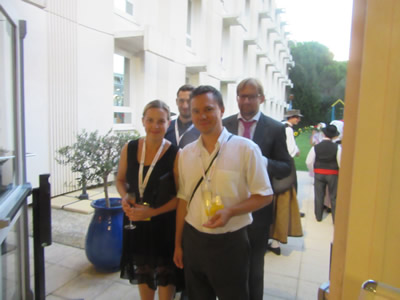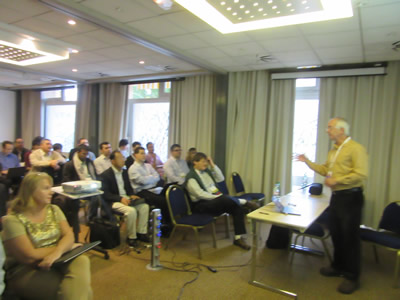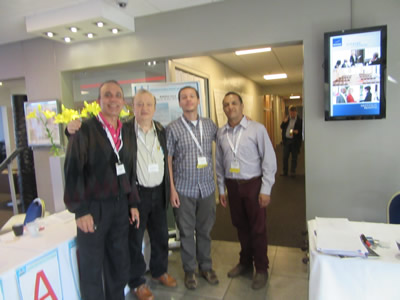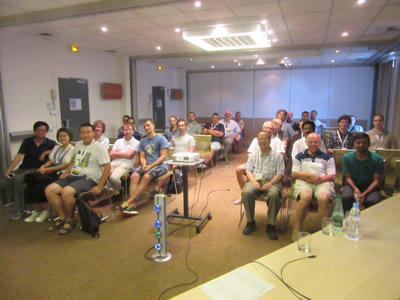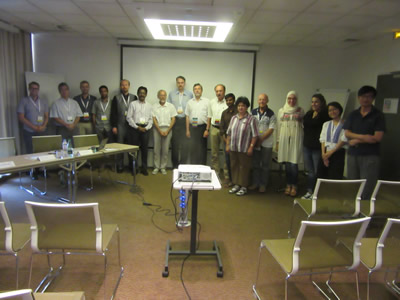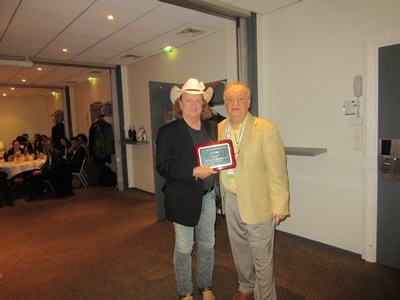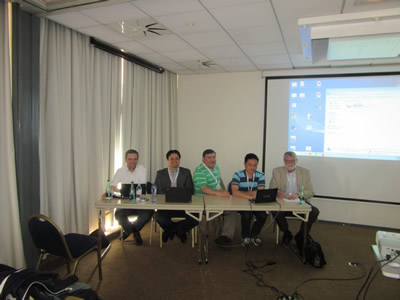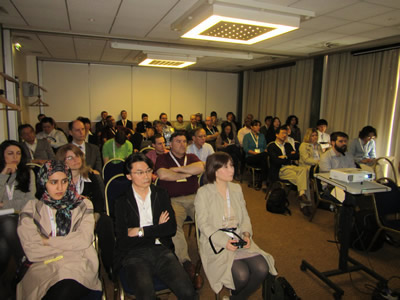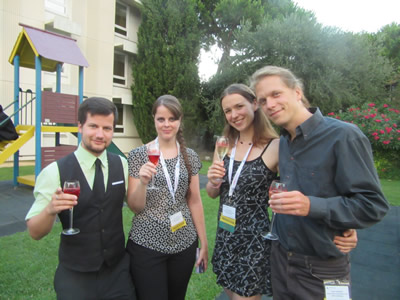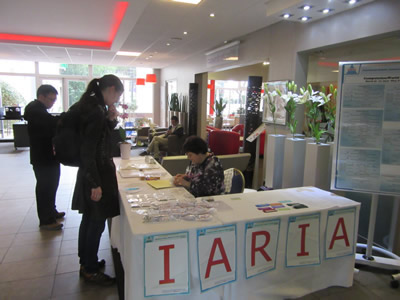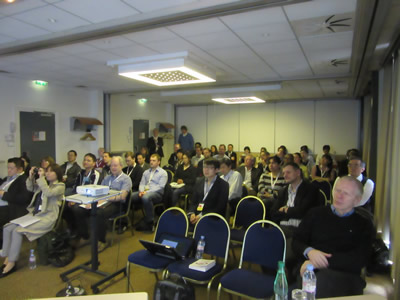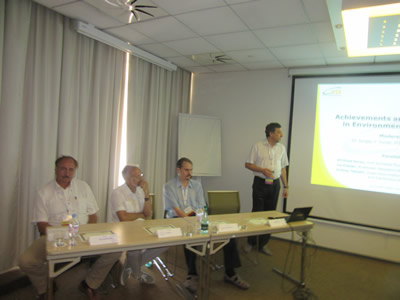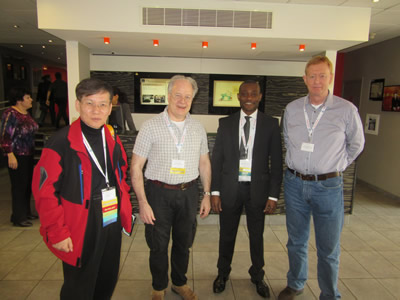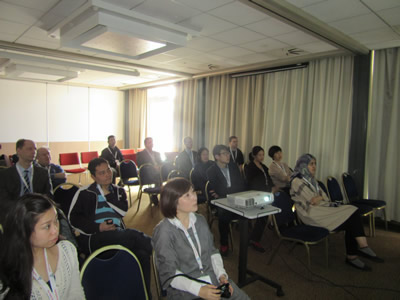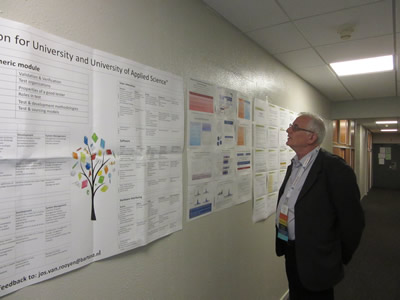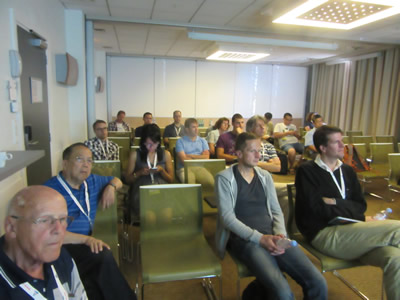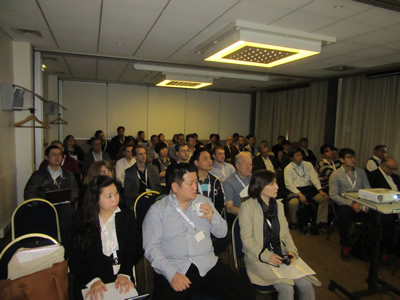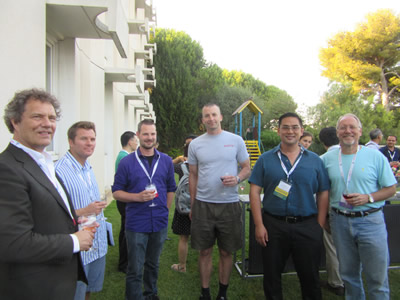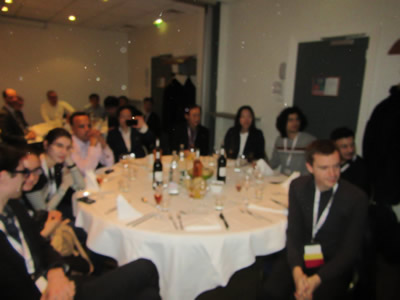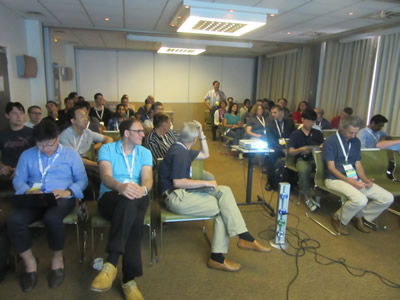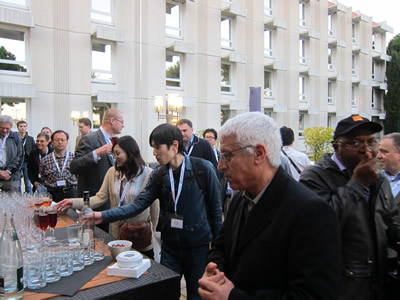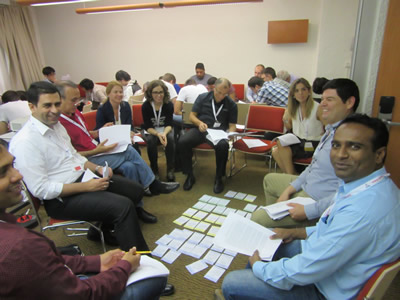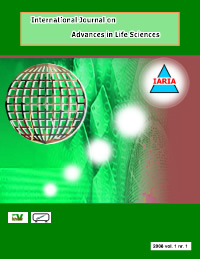eKNOW 2025 - The Seventeenth International Conference on Information, Process, and Knowledge Management
May 18, 2025 - May 22, 2025
eKNOW 2025
Onsite and Online Options: In order to accommodate various situations, we are offering the option for either physical presence or virtual participation (pdf slides or pre-recorded videos).
ISSN: 2308-4375
ISBN: 978-1-68558-272-2
eKNOW 2025 is colocated with the following events as part of DigitalWorld 2025 Congress:
- ICDS 2025, The Nineteenth International Conference on Digital Society
- ACHI 2025, The Eighteenth International Conference on Advances in Computer-Human Interactions
- GEOProcessing 2025, The Seventeenth International Conference on Advanced Geographic Information Systems, Applications, and Services
- eTELEMED 2025, The Seventeenth International Conference on eHealth, Telemedicine, and Social Medicine
- eLmL 2025, The Seventeenth International Conference on Mobile, Hybrid, and On-line Learning
- eKNOW 2025, The Seventeenth International Conference on Information, Process, and Knowledge Management
- ALLSENSORS 2025, The Tenth International Conference on Advances in Sensors, Actuators, Metering and Sensing
- SMART ACCESSIBILITY 2025, The Tenth International Conference on Universal Accessibility in the Internet of Things and Smart Environments
eKNOW 2025 Steering Committee
|
 |
Susan Gauch
University of Arkansas
USA
|
|
 |
Samia Aitouche
Laboratory of Automation and Manufacturing (LAP), University Batna 2
Algeria
|
|
 |
Roy Oberhauser
Aalen University
Germany
|
|
|
|
|
 |
Susan Gauch
University of Arkansas
USA
|
|
 |
Samia Aitouche
Laboratory of Automation and Manufacturing (LAP), University Batna 2
Algeria
|
|
 |
Roy Oberhauser
Aalen University
Germany
|
eKNOW 2025 conference tracks:
Knowledge acquisition with AI-based tools
AI-tools for knowledge extraction structured knowledge from unstructured data; Semantic analysis and AI for for deep semantic analysis; AI-based enhancing knowledge retrieval and understanding; AI-tools for machine learning for pattern recognition; AI in ontology and data modeling; AI tools for the creation and management of ontologies; Natural language processing for knowledge discovery; AI-enhanced learning repositories; AI systems to manage and optimize access to digital knowledge repositories; AI-tools in data governance; Integration of AI with traditional knowledge systems; AI-tools enhancing data interpretation and utility; Ethical implications of AI in knowledge acquisition for biases, privacy concerns, and ethical issues
Knowledge fundamentals
Knowledge acquisition, processing, and management; Linguistic knowledge representation; Knowledge modeling and virtualization; Types of knowledge: structural, behavioral, relationships, etc.; Knowledge representation: visual-picture, connectionist model, semi-structured [a la workflow], structured/formal; Knowledge acquisition status: potential new knowledge, guessed semantics, confirmed semantics, auditing confirmed semantics, etc.; Knowledge update: probable insertion, validated insertion, auditing the insertion periodically based on new knowledge, etc.
Advanced topics in Deep/Machine learning
Distributed and parallel learning algorithms; Image and video coding; Deep learning and Internet of Things; Deep learning and Big data; Data preparation, feature selection, and feature extraction; Error resilient transmission of multimedia data; 3D video coding and analysis; Depth map applications; Machine learning programming models and abstractions; Programming languages for machine learning; Visualization of data, models, and predictions; Hardware-efficient machine learning methods; Model training, inference, and serving; Trust and security for machine learning applications; Testing, debugging, and monitoring of machine learning applications; Machine learning for systems.
ML: Knowledge and Information processing using Machine Learning
Machine learning models (supervised, unsupervised, reinforcement, constrained, etc.);
Generative modeling (Gaussian, HMM, GAN, Bayesian networks, autoencoders, etc.);
Explainable AI (feature importance, LIME, SHAP, FACT, etc.);
Bayesian learning models;
Prediction uncertainty (approximation learning, similarity);
Training of models (hyperparameter optimization, regularization, optimizers);
Active learning (partially labels datasets, faulty labels, semi-supervised);
Applications of machine learning (recommender systems, NLP, computer vision, etc.);
Data in machine learning (no data, small data, big data, graph data, time series, sparse data, etc.)
Trends on annotation and extraction
Natural Languages-based features and systems; Annotation handling (multilingual, semantic, shared, open, prosody, etc.); Annotation as a Service (AaaS); Handling argument-based knowledge; Event-based knowledge; Tagging and supertagging; Extraction patterns; Uncertain reasoning; Visual error analysis; Domain-specific paraphrase extraction; Tweets and sentence compression; Role labeling semantic; Heterogeneous annotations
Trends on news and social media
New events-based knowledge;In-context news creation; Superlative expressions; News highlights generation systems; News special summarization systems (e.g, for blind and/or visually impaired people); Sentiment classification (emotion, irony, sarcasm, rhetorical questions, opinion, etc.); Rumor dynamics and social media; Contextual pragmatic models;; Social prediction; Prediction semantic analysis; Predictability of distrust; Aspect-based sentiment analysis; Argument generation systems; Relevance of citation recommendation; Retrieval bias and retrieval performance; High-speed captioning images; Language models for images; Participative KM platforms
Trends on knowledge processing support and mechanisms
Open knowledge bases; Structured knowledge bases; Big knowledge applications; Linked knowledge objects; Knowledge datasets; Machine translation systems; Convolution neural networks; Hybrid representations and equivalent semantics; Processing bilingual information; Topic trends and temporal signatures; Cross-view features; Pattern-based knowledge; Ranking optimization in context; Concept-based classification and ranking; KM design for life long learning and long term uses
Knowledge identification and discovery
Mining for knowledge; Knowledge identification: semantic-ID, etc.; Knowledge discovery: how to express knowledge requests?, how to find knowledge?, etc.; Knowledge refinement: after many acquisitions, former knowledge can change semantically or structurally, etc.; Knowledge clustering
Knowledge management systems
Knowledge data systems; Industrial systems; Context-aware and self-management systems; Imprecision/Uncertainty/Incompleteness in databases; Cognitive science and knowledge agent-based systems; Databases and mobility in databases; Zero-knowledge systems; Expert systems; Tutoring systems; Digital libraries
Knowledge management (KM) and event processing (EP)
Methodologies and approaches to overcome technical hurdles and improve the interplay between KM and EP; Applications from various domains (e.g. financial, manufacturing, trading, telecommunication, service), which benefit from an integrated KM and EP
Knowledge semantics processing and ontology
Dynamic knowledge ontology; Collaborative knowledge ontology; Knowledge matching; Contextual reasoning; Tools for knowledge ontology; Context-based information extraction; Knowledge trading systems; Knowledge exchange portals; Cognitive sytems and knowledge processing; Human aspects in knowledge processing
Technological foresight and socio-economic evolution modelling
Anticipatory networks and decisions; Expert information management; Foresight support systems; Generating technological recommendations and rankings; Information society evolution; Online and real-time Delphi; Ontological knowledge bases of technologies and products; Roadmapping support systems; Strategic support systems; Technological information fusion; Technological policy decision support systems
Process analysis and modeling
Analysis and development of business architectures; Data mining and information retrieval for business processes; Business process modelling; Business process composition; Analysis and management lifecycle; Reasoning on business processes; Optimization of business processes; Adaptive business processes; Business process reengineering; Integration of processes; Process discovery; Business process quality; Resource allocation
Process management
Criteria for measurement of business process models; Monitoring business processes; Business process visualization; Management of business process integration; On-demand business transformation; Performance measurement; Conformance and risk management; Prediction; Business transformation; Packaged industry applications; Industry solutions
Information management
Informational mining/retrieval/classification; Geographic and spatial data Infrastructures; Information technologies; Information management systems; Information ethics and legal evaluations; Optimization and information technology; Organizational information systems
Decision support systems
Multi-criteria decision theory; Artificial intelligence; Adaptive design for decision support systems; Support technologies: knowledge-driven, data-driven, model-driven, and geographically-driven systems; Support methods: artificial neural networks, fuzzy logic, and genetic/evolutionary algorithms; Modeling, interfaces, and performance; Applications using decision support systems
Deadlines:
Submission | Feb 21, 2025 |
Notification | Mar 24, 2025 |
Registration | Apr 05, 2025 |
Camera ready | Apr 13, 2025 |
Deadlines differ for special tracks. Please consult the conference home page for special tracks Call for Papers (if any).

